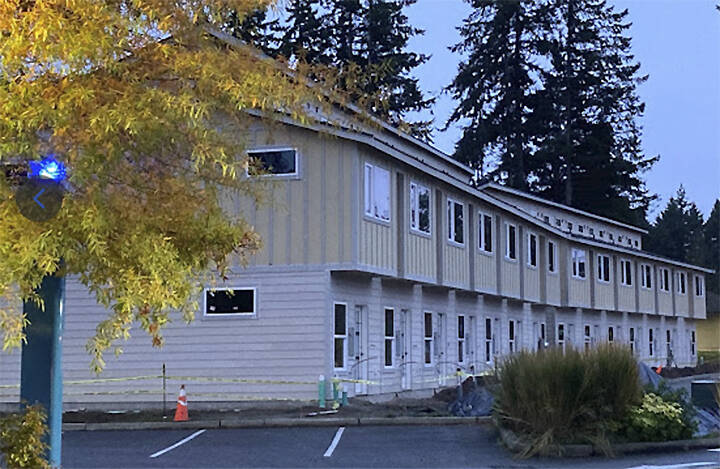A last-minute drive by affordable housing was stopped short by overworked government and process at the Bainbridge Island City Council meeting Oct. 22.
Wintergreen Townhomes was late to the game in applying for a state grant that, if obtained, could have saved buyers of 14 low-income homes there $45,000 apiece.
But because of the late notice, the effort was not on the meeting agenda, which upset some on the council because of the importance of process. Also, city manager Blair King said since Wintergreen’s application would require staff time, there just wasn’t enough available before the Oct. 31 grant deadline.
“The city can’t stop everything to get this application in,” Mayor Joe Deets said. “It doesn’t work that way. It’s not realistic.”
Deputy mayor Ashley Mathews said the city should try to help, since affordable housing is No. 2 on its list of priorities. She said it would be worth it if just one person could get a home who might not otherwise.
Councilmember Clarence Moriwaki was against even talking about the issue because it wasn’t on the agenda. He said the council has to be dependable, transparent, consistent and predictable. “The credibility of our city is at stake over this,” he said, adding he also opposed it because the “timeline is impossible.” He was concerned adding it late to the agenda would set a precedent they don’t want to deal with.
Councilmember Kirsten Hytopoulos agreed. “Many times we’ve said no to people who had pressing issues.” She later said Wintergreen was trying to run “roughshod over the process.”
Councilmember Leslie Schneider said maybe the council needs to look at the process of getting things on the agenda. “If this spurs a conversation on how to tweak that I’m OK with that.”
Councilmember Brenda Fantroy-Johnson said too often the council throws up barriers to good things getting done because of process. She said Wintergreen wasn’t asking the city for money; it just needs help finishing an application. The council has aided similar applications before, she said. “Who is it going to help, and who is it going to hurt?”
Councilmember Jon Quitslund chastized those in the audience representing Wintergreen for getting the request into the city so late. He said Wintergreen became aware of the opportunity late in the game. “Sometimes it’s just bad luck,” he said about the timing. Quitslund said he wanted Wintergreen to get the grant, “but I’m not happy about it. The city has not been in the way. This whole project has had many flaws and hangups. It should never happen again when dealing with the city.”
Attorney Hayes Gory said Wintergreen tried to get the item on the agenda in time and thought it had. He said because of the length of time in getting city OK for the project and other reasons, the costs of construction have gone up $700,000 for the project. It just found out about the state grant Sept. 27 and has 90% of the application done. He called it a “golden opportunity” for affordable housing if Wintergreen could get the $890,000 grant.
The project will still have 14 affordable housing units as required but David Smith of Wintergreen said instead of people making $45,000 a year to afford them they will need to make $60,000. “We’re the only ones building affordable housing” on BI, he said, refering to Wintergreen being a private company.
“We have to make ends meet, because of our investors,” Gory said, adding, “It’s not a money grab. It’s a signal of support.” Gory said the state grant they wanted to apply for is an incentive to get private developers off the sidelines and into the game of building affordable housing.
As to the argument that city staff doesn’t have time to finish the grant, Gory reiterated only 10% of the application is left to be done, and, “We’ll continue to do the lion’s share of the work” on that.



